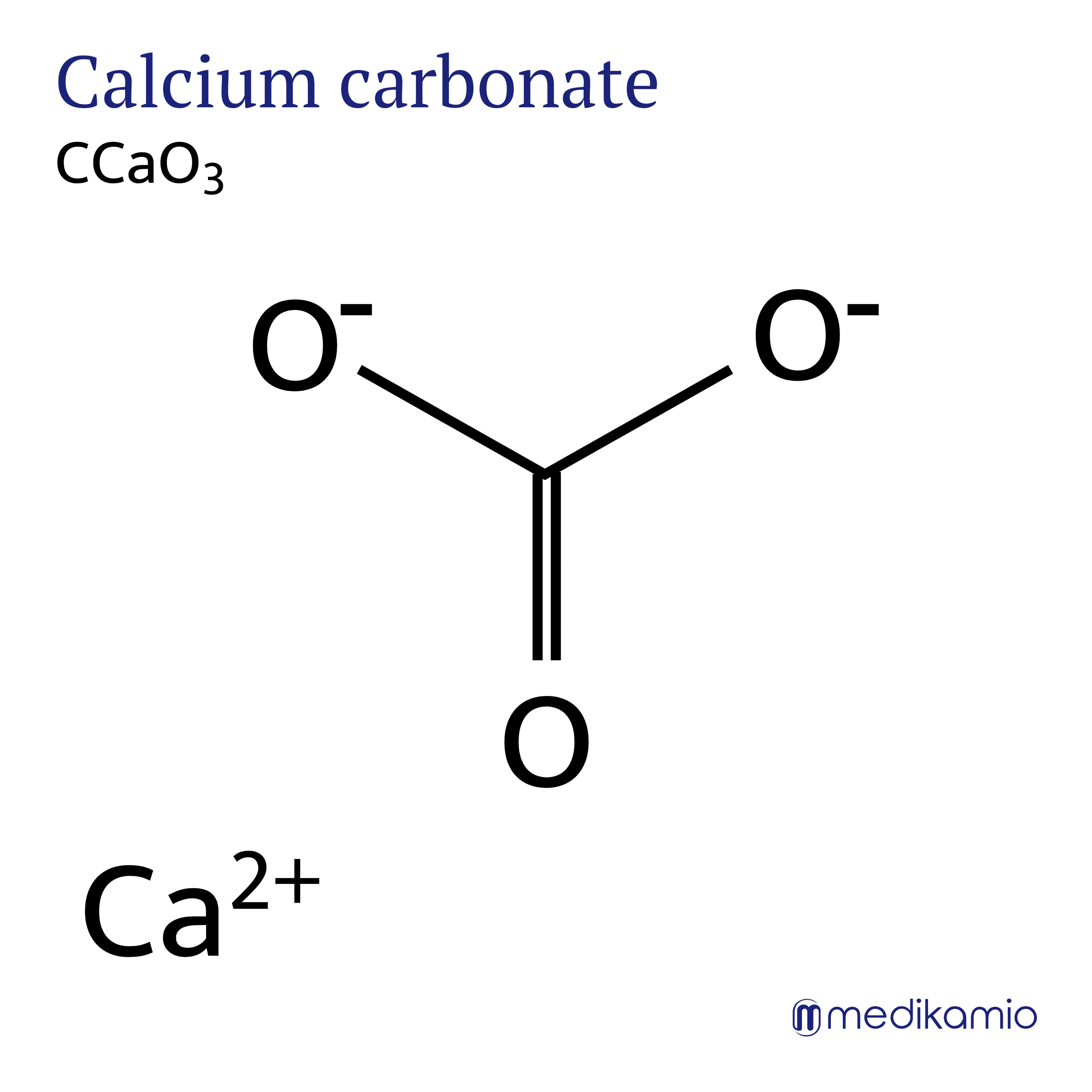Basics
Calcium carbonate is an active ingredient used to treat heartburn and acid regurgitation (reflux). It is also used as a phosphate binder for high phosphate levels and for the prevention and treatment of calcium deficiency and osteoporosis. Calcium carbonate is the calcium salt of carbonic acid and is found all over the world in the form of limestone or marble. Calcium carbonate is also found in mussel shells, pearls, crustaceans, snails, corals, bones and teeth.
Calcium carbonate is a white, colorless and odorless solid. It decomposes at approx. 600°C into carbon dioxide and calcium oxide.


